United Nations Relief and Works Agency for Palestine Refugees in the Near East
The UN Relief and Works Agency for Palestine Refugees in the Near East (UNRWA) was established by the General Assembly (GA res. 302 (IV)) on 8 December 1949, following the 1948 Arab-Israeli conflict, to carry out direct relief and works programmes for Palestine refugees. The Agency began operations on 1 May 1950.
Office of the United Nations High Commissioner for Refugees
The work of the Office of the UN High Commissioner for Refugees (UNHCR) is humanitarian and non-political. Its principal functions are to provide international protection to refugees and other persons of concern, including stateless people, and to seek durable solutions for them. Protection includes preventing refoulement (the involuntary return of a refugee or a person of concern to a country where he or she may have a well-founded fear of persecution) and ensuring that host countries follow international norms in the treatment of refugees.

World Tourism Organization
UNWTO is the UN's specialised agency in the field of tourism. It provides leadership and support to the tourism sector in the advancement of sustainable policies, practices and actions. Through the promotion and development of responsible, sustainable and universally accessible tourism, UNWTO endeavours to maximise tourism's contribution to socio-economic growth, job creation, development, environmental conservation, cultural enrichment and international understanding, while minimizing negative social or environmental impacts. It pays particular attention to the interests of developing countries.
World Trade Organization
The World Trade Organization (WTO) is the only global international organization dealing with the rules of trade between nations. At its heart are the WTO agreements, negotiated and signed by the bulk of the world’s trading nations and ratified in their parliaments. The goal is to help producers of goods and services, exporters, and importers conduct their business.
International Atomic Energy Agency
The purpose of the International Atomic Energy Agency (IAEA) is to promote and accelerate the contribution atomic energy makes to peace, health and prosperity throughout the world. At the same time, the Agency is charged with ensuring that the assistance it provides is not used to further states' military objectives, and that nuclear material is not diverted to non-peaceful activities.
United Nations Industrial Development Organization
The UN Industrial Development Organization (UNIDO) is the UN specialized agency mandated to promote industrial development and international industrial cooperation. The Organization's mission statement is: Partner for prosperity: UNIDO aspires to reduce poverty through sustainable industrial development. we want every country to have the opportunity to grow a flourishing productive sector, to increase their participation in international trade and to safeguard their environment.
World Intellectual Property Organization
The World Intellectual Property Organization (WIPO) is dedicated to developing a balanced and accessible international intellectual property (IP) system that rewards creativity, stimulates innovation and contributes to economic development while safeguarding the public interest.
International Telecommunication Union
The International Telecommunication Union (ITU) was founded in 1865 in Paris as the International Telegraph Union. The 1932 Madrid Plenipotentiary Conference decided the current name, which came into force on 1 January 1934. The ITU is an inter-governmental organization that brings together governments and industry to coordinate the establishment and operation of global telecommunication networks and services.
International Monetary Fund
The International Monetary Fund (IMF) is an organisation of 187 countries that works to foster global monetary cooperation, secure financial stability, facilitate international trade, promote high employment and sustainable economic growth, and reduce poverty.
World Bank Group
Since inception in 1944, the World Bank has expanded from a single institution to a closely associated group of five development institutions. Its mission evolved from the International Bank for Reconstruction and Development (IBRD) as facilitator of post-war reconstruction and development to the present-day mandate of worldwide poverty alleviation in close coordination with its five affiliates that form the World Bank Group: the International Development Association (IDA), the International Finance Corporation (IFC), the Multilateral Guarantee Agency (MIGA), and the International Centre for the Settlement of Investment Disputes (ICSID)